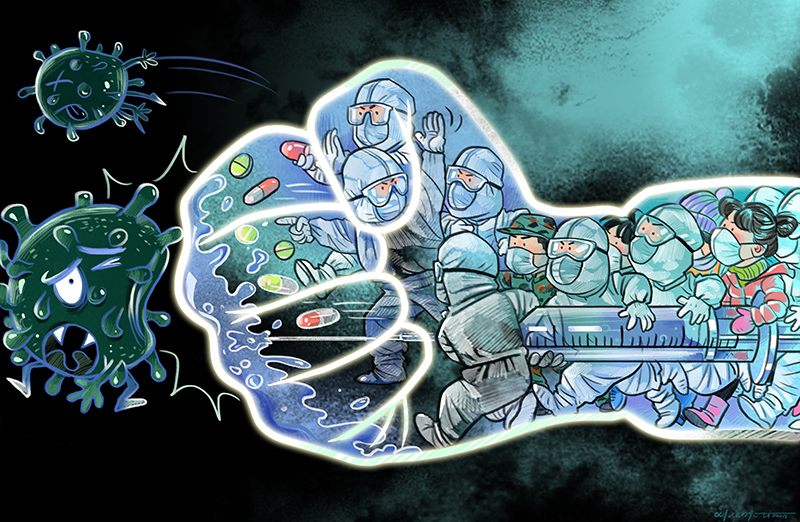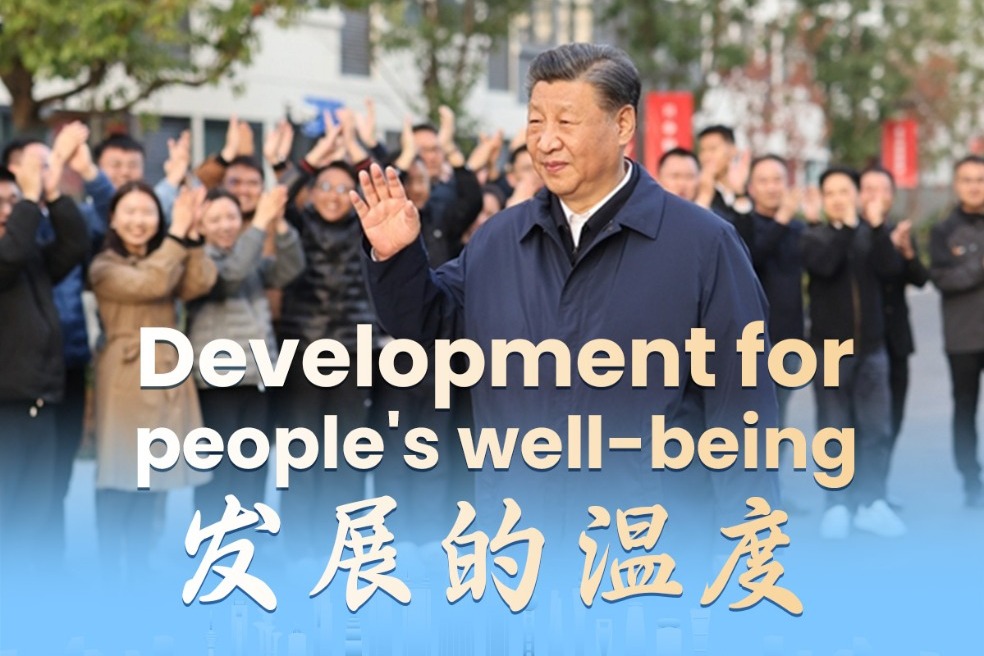Curbing 'infodemic' crucial to epidemic battle: China Daily editorial


Smoking or drinking liquor can help prevent one being infected with the novel coronavirus. Pets can spread the virus at home. The coronavirus leaked from a research lab in Wuhan, or else is a biological weapon made by the United States. These are just several of the many rumors that have circulated on social media, which have either misled the public or caused panic.
The widespread misinformation about the novel coronavirus has been harmful to the fight against the outbreak, so much so that Sylvie Briand, director of global infectious hazard preparedness for the World Health Organization, recently labeled it an "infodemic" that could be "an obstacle to a good response and hamper the effective implementation of countermeasures". The plague of false information must therefore be addressed.
Yet it is by no means an easy task to contain this infodemic. Psychologists have attributed people's zeal to share misinformation to human weakness because many find it much more exciting than to spread the truth. That explains why a lie can travel halfway around the world while the truth is putting on its shoes.
There are also those who just want to play on people's fears to make profit. For instance, the rumor that the oral medicine of shuanghuanglian could provide effective prevention for novel coronavirus infection sparked a nationwide rush to buy the common traditional Chinese remedy for a cold.
Yet it is the information vacuum that provides the most fertile soil for misinformation, especially during the outbreak of a previously unknown disease. That's where the government has to play its due role, by providing the public with the most accurate, authentic and certain information in a timely manner so as to prevent an information vacuum that rumors rush to fill.
That requires high credibility of government officials, which, once compromised, takes a long time to rebuild. This is known as the "Tacitus Trap", which refers to a situation where no matter what the government says or does, people consider it a lie or bad deed.
In this regard, Wuhan, the epicenter of the outbreak, seems to have had a painful lesson to learn. While an investigation is still continuing into how the local authorities handled the alarm first sounded by frontline doctors, it is believed the city might have been better prepared to defend itself against the virus if information were provided in a more open, transparent and timely way.
Officials at all levels must make sure they can avoid the Tacitus Trap, for as Confucius advised the people's trust should be the top priority among all considerations of governance.
President Xi Jinping himself has used the term to highlight the need to maintain government believability, cautioning that when public power loses its credibility, no matter what speeches are made or whatever is done, society will evaluate what it does negatively.
































